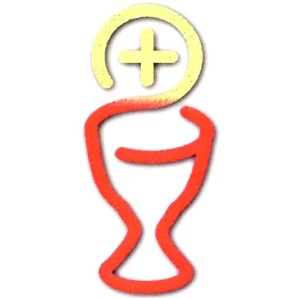Rev Sue preached this sermon on Wednesday 5 October. Here it is again for you.
I don’t know whether you remember the children’s story “Five Children and It”. The “it” refers to the Psammead, a sand fairy, encountered by four children and their baby brother when they are playing in a gravel pit. The Psammead promises them a wish between them every day, the effects of which will disappear at sunset. Of course, it all goes wrong. They wish to be beautiful, but then no one recognises them, and they are not allowed into their own home and both get nothing to eat and are in trouble for staying out all day. They wish for riches, but the Psammead is behind the times and provides outdated coins that most shopkeepers will not accept, and which in any case disappear at sunset, leaving goods unpaid for. They wish for wings and are having a wonderful time flying but forget the time and find themselves still in the air perilously close to sunset. They make it to a church bell tower but then have to shout for help to be rescued. The problem is not that the wishes don’t come true, but that they wish for the wrong things.
When Jesus taught his disciples to pray, he was telling them what they should pray for. There are three direct requests in the Lord’s Prayer. The first is “give us this day our daily bread”. We are told to ask for what we need today. To live in the present, not trammelled by past hurts or regrets or crippled by anxieties about the future. We ask for just enough bread for today. Not so little that our overriding need is to find more for ourselves and our families, and not so much that deciding what to do with it becomes a burden. We ask to be fully present now, at this very moment with the person we are with or the task we are doing, neither preoccupied by a past we can’t change nor planning for the future.
The second prayer is about the past. We ask God to forgive us. No excuses, no blaming others for things that were our fault, and no punishing ourselves by saying that we don’t deserve to be forgiven but asking God to wipe clean the slate so that we can start again. And as we are forgiven, so we forgive others. It’s not that God’s forgiveness is conditional, but that if we live in resentment and hatred, we are not free. If we cannot let go of the past we are imprisoned by it. We aren’t required to pretend that something didn’t happen, or to minimise it. We must fully acknowledge the pain that someone has caused us but then we must let it go. We might not want to see the person who hurt or harmed us ever again, if the memory continues to cause us pain, but we must allow God to free us from the gnawing anger that destroys our peace.
And thirdly, we pray that God will not lead us into temptation but will deliver us from evil. We know that we are weak, and we need to pray that we will be alert and obedient to the voice of God in the future. We are asking God to preserve us from the arrogance that says that we know best and the forgetfulness that results in us unintentionally doing or saying the wrong thing.
Finally, if we have prayed for necessities of everyday life, been freed from the burdens of guilt and anger and committed ourselves to listening to God and doing his will, there is only one thing left to pray for: that God will keep us safe from the things that are stronger than us and might harm us.
We can sum up the requests in three phrases: give us, forgive us, deliver us; these phrases can be the basis for our daily prayer. And we remember that the one to whom we pray is our heavenly father, who cares for us, his little children, and who we can trust to give us all that we need.
With thanks to Rev Dr Sam Wells for some of the ideas expressed here.
